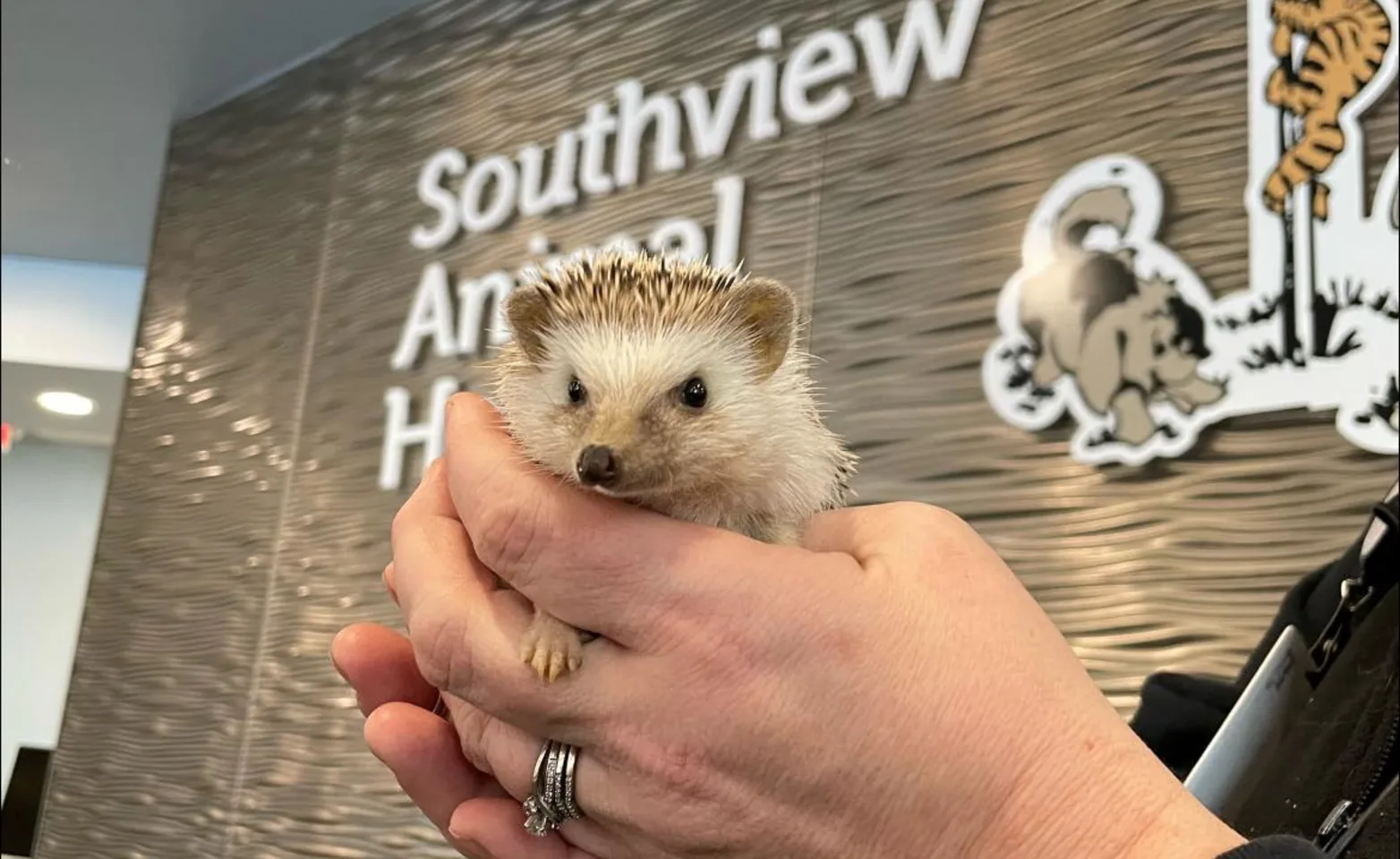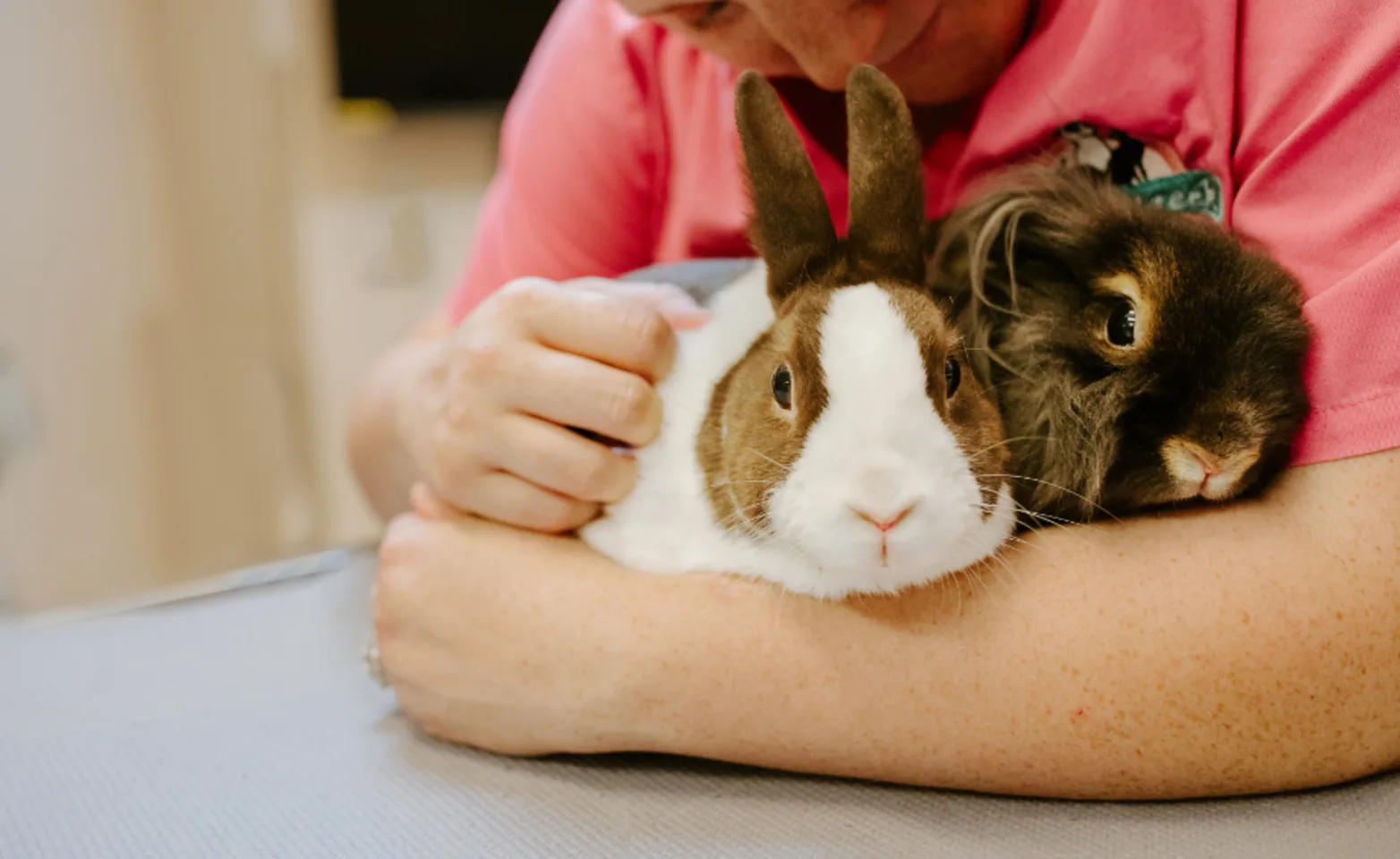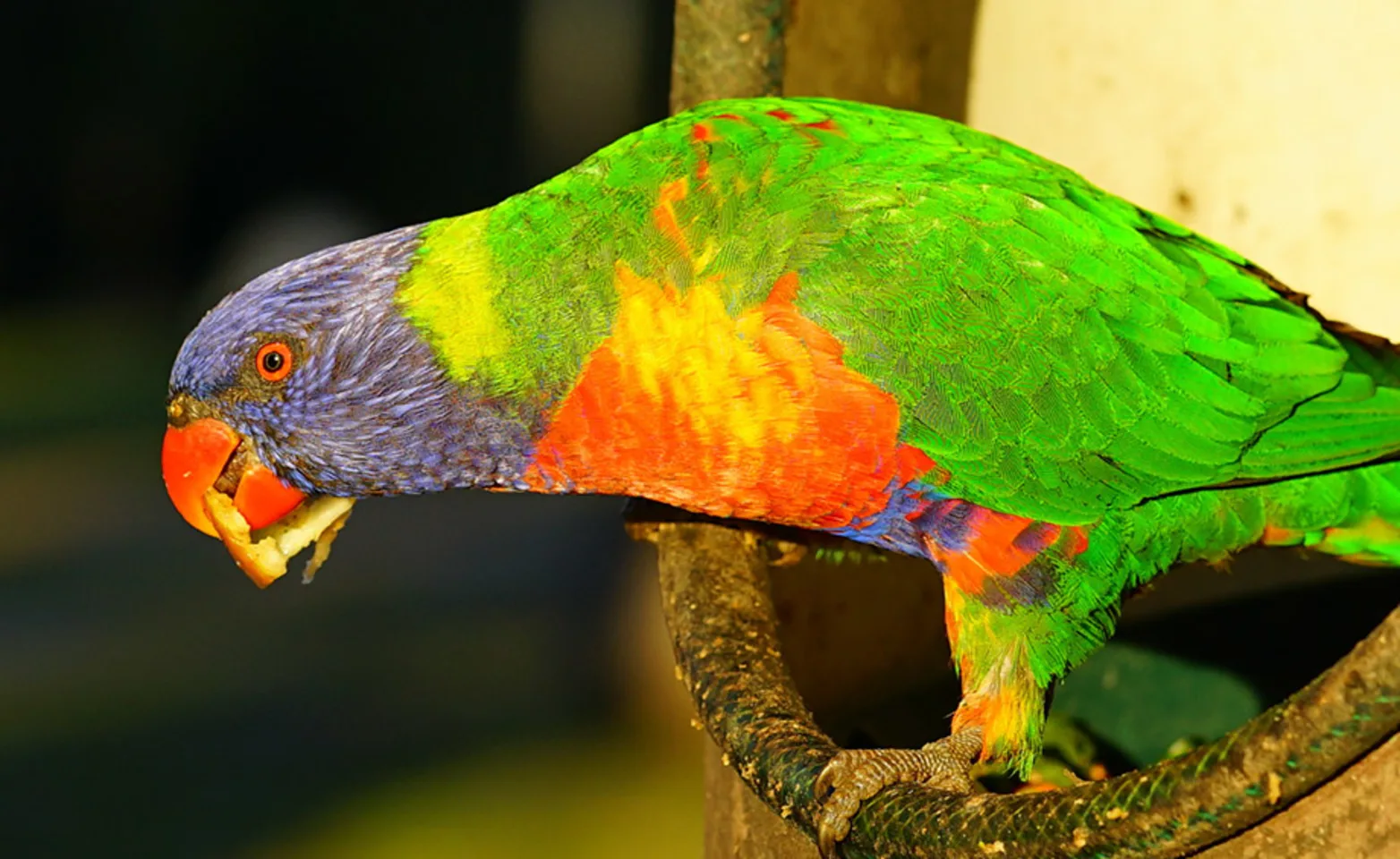Southview Animal Hospital

Exotic Pet Care
We Are Pleased to Offer the Following Services at Southview Animal Hospital:
Essential Exotic Veterinary Care:
Husbandry and Annual Physical Exam. In large part your visit is accurately and confidently teaching you about the most appropriate food, housing, temperature, light, vaccinations, etc. that your exotic pet needs in order to have the best chance at staying happy and healthy. Many exotics pets age significantly faster than cats and dogs, and as a result, health problems can develop and progress rapidly making annual physical exam and preventative screening essential.
Exotic Urgent Care:
Southview Animal Hospital has several veterinarians and technicians that are trained to stabilize and treat avian and exotic pets in the case of an emergency. If your exotic pet is exhibiting signs of illness, please call us right away; it probably is an emergency situation for your pet. We have a full range of diagnostic services available such as digital x-ray, ultrasound, rigid endoscopy, computed tomography (C.T.) should it be needed to get your pet on track to good health.
Exotic Small Mammal Surgery:
Our doctors are very experienced in performing a variety of surgeries, such as routine spays and neuters, cystotomies, mass removals and other medically necessary procedures. Our technicians are highly skilled in placing IV catheters, intubation, and intensive monitoring of all species. All surgical cases receive pain-relieving medications and we do everything possible to ensure a successful procedure with a high standard of care.
Exotic Dental and Oral Care:
As an exotic pet owner, you are the first line of oral health care of your beloved pet. It is important to contact our team with any concerns noticed when observing your pet. Signs of medical concern can include swelling, moist or disrupted hair on face or chin, abnormal facial posture when eating such as head tilting.
Our team is well equipped to with a full dental suite and knowledgeable team eager to help your pet.
Euthanasia & Cremation Services:
Our experienced and caring veterinarians are trained to perform euthanasia on exotic pets and birds in our dedicated comfort room. We offer sedation to ensure that your pet is comfortable and free of pain or distress during the process. Our team will also provide you with all the information you need to make informed decisions about the aftercare of your pet.
Beak and Nail Trims for Birds:
At Southview Animal Hospital, in conjunction with a physical examination, we offer basic exotic pet grooming services such as nail trimming for all species and beak trimming for turtles and tortoises. We also provide therapeutic beak trimming for birds that have suffered injury or damage to their beaks.
Additional Exotic Services:
Anesthetic Monitoring Equipment Specific to Exotics
Maxillary and Mandibular Abscess Surgery
Digital X-ray
Ultrasound
Rigid Endoscopy
CT Scanner
In-house Laboratory
Behavior Counseling
Client Education for Rabbits with Spinal Cord Injuries
Client Education and Training for Using Rabbit Wheelchairs
Sexing

Exotic Animals
Although a lot of information regarding exotic animals is widely available on the Internet, it is often difficult to determine what sources to trust. You can rely on our experienced veterinary team’s knowledge of mice, rats, pot-bellied pigs, and hedgehogs.
Not only can we provide medical assessments and perform surgical procedures, but we can also help you prevent many diseases related to improper nutrition, which are extremely common in these animals.

Reptiles
Reptiles can suffer from various diseases, some of which can cause serious respiratory, gastrointestinal, and liver problems. They also commonly harbor internal and external parasites, including hookworms, roundworms, mites, and ticks.
We are happy to share our specialized knowledge of appropriate enclosures, temperature and humidity, lighting, substrates (ground covering), cleaning, skin shedding and nutritional counseling.
Call us immediately if you notice any signs of illness: vomiting or regurgitation, diarrhea, loss of appetite or weight, weakness or loss of energy, wheezing, mucus or bubbling around the nostrils, changes around the mouth (inflammation, purplish-red spots, dry and diseased tissue), and changes in the skin (reddening, slow-healing sores, swelling, discharge).

Small Mammals
Rabbits
Guinea pigs
Hamsters
Chinchillas
Sugar Gliders
Ferrets
And others
Small Mammals are susceptible to a variety of diseases and conditions, including overgrown teeth, hairballs, parasites, and cancer. They also tend to hide signs of illness or pain.
Teeth, which grow continuously often require trimming. (We can also recommend appropriate chew toys, which may help keep the teeth worn down.)
We strongly suggest that you have your small mammal spayed or neutered (if applicable). Even in households with a single small mammal, spaying or neutering has plenty of benefits. Contact us if your small mammal:
Has discharge from the eyes or nose, runny stool, or a gurgling stomach
Has an elevated or low temperature
Begins drooling, scratching at the ears, or sneezing
Starts tilting his or her head
Develops bald patches in his or her fur
Stops eating, appears overly quiet or shows other abnormal behavior

Avian Medicine and Surgery
Budgies, cockatiels, parrots, and songbirds tend to live longer, healthier lives when they receive regular veterinary care. We can provide nutritional counseling, health assessments, grooming assistance, sexing, fecal parasite testing, medical and surgical services, and annual physicals.
We recommend that you bring your bird in for an initial checkup, then stop by once a year to ensure that he or she remains healthy and isn’t hiding signs of illness. Birds are good at hiding signs of illness, so if you notice that your bird is acting unusual or if something just doesn’t seem right, call us as soon as possible.
